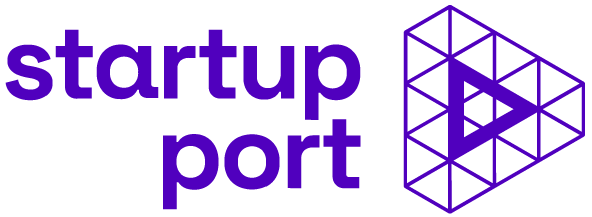Christine Tiedemann, the new head of the Startup Port network, is bringing a breath of fresh air to the startup scene in the Metropolitan Region North. With her extensive experience as a consultant, empowerment coach and her passion for strategic entrepreneurship, she wants to strengthen the regional startup ecosystem.
Christine, you have been the new network manager of the Startup Port since July 2024: could you give us an insight into your career to date?
I originally come from the event sector. I established various event formats such as the Drachenfestivals on Tour and organized large productions for NDR, among others. The exciting thing was to bridge the gap between an all-round carefree package for visitors, forward-looking artist management and a financially viable concept for my company. After separating from my husband and business partner, I made a conscious decision to take a new path. The combination of lightness and strategic entrepreneurship remains my theme. In order to be able to offer this in a well-founded way, I have systematically expanded my knowledge from my sociology and psychology studies through further training. For eight years now, I have been offering coaching and consulting services for individuals and teams on a part-time basis with my company tiedepunkt. My entry into the university and start-up landscape was a logical step on the way to using my skills effectively and strategically. I am delighted that I have already been able to support many innovators in pursuing their visions sustainably as a (start-up) consultant, for example at the Startup Bridge at Wedel University of Applied Sciences.
What is your vision for the Startup Port and what goals would you like to achieve in your new role?
My vision is to further strengthen and expand the startup ecosystem in the northern region. I am convinced that we can achieve great things in our metropolitan region if all stakeholders work together to be an attractive location. This also includes the interdisciplinary networking of students and researchers with innovation-oriented companies. I see myself as a strong networker, moderator and sparring partner who creates the framework for this.
What particular challenges do you see for start-ups from science and how can the Startup Port provide support here?
Most start-up teams from academia have a high level of expertise in their field of research. In order to develop an innovation into a successful business model, technology-based approaches also require entrepreneurial and business management expertise. Or, in the other case, business people or business economists are looking for technical expertise to implement their start-up projects. This is where the Startup Port comes in: We actively support the search for suitable co-founders and at the same time offer qualifications to empower scientists to implement their start-up ideas themselves. In our ideation workshops and other early-stage offerings, we teach the skills needed to see yourself as an entrepreneur, develop visions and learn the necessary tools for a start-up. And through our networking work, we create visibility for successful role models who encourage others and make entrepreneurship even more socially acceptable.
Or to put it in a nutshell: For me personally, it is a matter close to my heart to convey to young people in general and scientists in particular: “Being an entrepreneur is a cool thing”.

